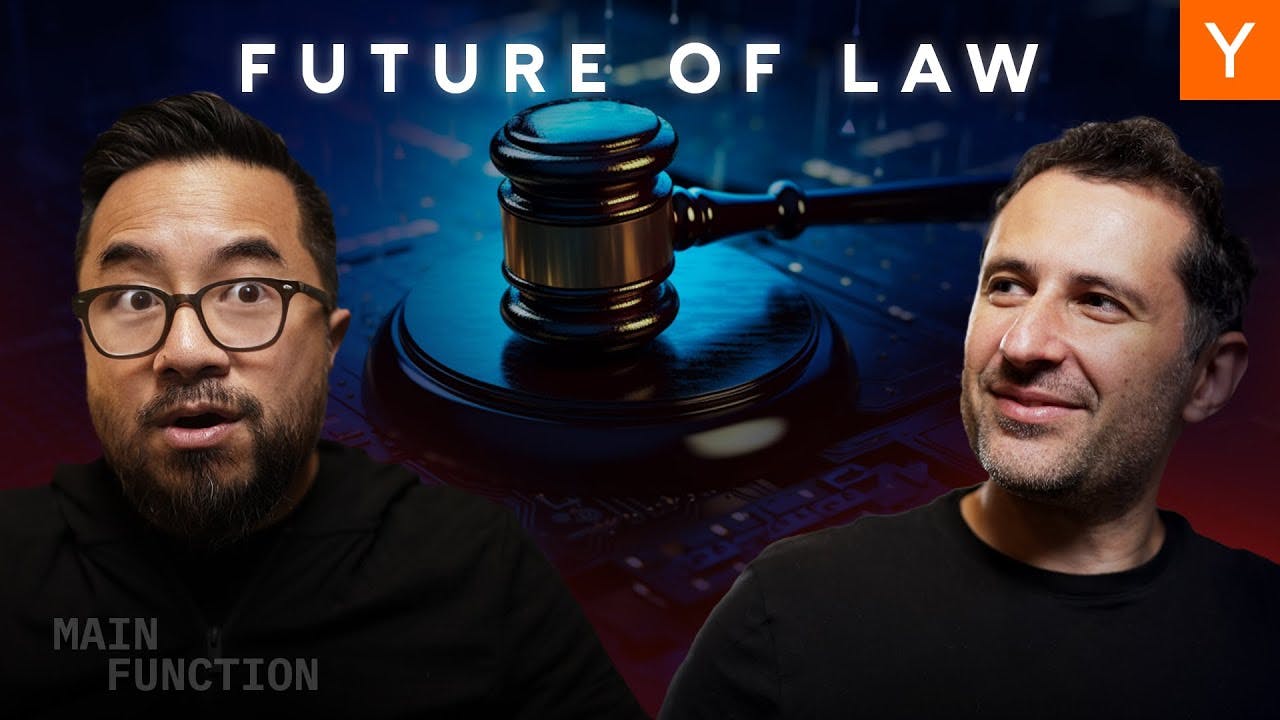AI and the Future of Law: The 10 Year "Overnight" Success Story
16 Nov 2023 (2 years ago)

Intro (0s)
- Jake Heller, co-founder of Case Text, shares his experience in building an AI startup in the legal field.
- The goal was to apply technology to make legal work more efficient and accessible.
- There is a disconnect between the ease of consumer actions and the difficulty of legal work.
- Technology has only scratched the surface of its potential in the legal profession.
Part 1 (48s)
- Jake's background is in law, and he noticed the need for technology to improve legal work.
- The difficulty of finding crucial information for a case led to the idea of using AI.
- The practice of law can have high stakes, such as life-or-death situations or impacting billion-dollar lawsuits.
- The early days of Case Text focused on crowdsourcing and applying natural language processing to legal work.
Part 2 (3m9s)
- Case Text went through ups and downs over the course of 10 years.
- They made mistakes in assuming product-market fit and scaling too quickly.
- The breakthrough came with access to GPT-3 and GPT-4 from OpenAI.
- The AI capabilities allowed them to create a product, co-counsel, that was life-changing for their customers.
- Case Text experienced significant revenue growth and found product-market fit with the golden magic demo, showcasing the AI's ability to perform complex legal tasks quickly and accurately.
- Large language model (LLM)-based startups that can demonstrate immediate value are set to succeed in their markets.
Jake and Case Text's Success (10m56s)
- Jake and Case Text succeeded due to their determination and customer-centric approach.
- Turning raw models into a usable product for lawyers is challenging.
- Case Text started as a user-generated content website and was prepared for the emergence of large language models (LLMs).
- LLMs, like GPT4, have the potential to read, understand, and generate text at a high level.
- This technology can revolutionize the legal field by automating tasks like document review and case evaluation.
- The impact of LLMs is just beginning, and they have the potential to make a significant difference in areas like the California Innocence Project.
The Power and Opportunity of LLMs (10m56s)
- LLMs have the power to compress and automate the work of many people.
- The tooling and developer tools necessary to harness the power of LLMs present a significant opportunity for startups.
- The ecosystem around LLMs will resemble the cloud computing ecosystem.
- There will be a base layer of capability (LLMs), additional technologies to enhance their use (e.g., Lang chain), and an application layer built on top.
Challenges and Opportunities in Engineering LLMs (10m56s)
- Engineering LLMs to handle thousands of users simultaneously and review millions of pages of text is a significant challenge.
- Ensuring accuracy and preventing hallucinations in the output of LLMs is another difficult task.
- Case Text had to develop their own internal solutions to address these challenges.
- There is potential for new products and technologies to support the use of LLMs in the future.
Encouraging Innovation and Entrepreneurship (10m56s)
- Jake encourages others to start companies and apply to Y Combinator (YC).
- The moment for leveraging LLM technology is underhyped, and there is a lot of untapped potential.
- Starting a company now to work with this technology can lead to significant rewards.
- Jake's success with Case Text is an example of the possibilities with AI.
- YC provides the right advice and support for aspiring entrepreneurs.
Conclusion (10m56s)
- Case Text's success is considered one of the biggest wins in AI.
- The speaker is proud to have worked with Jake and is excited to see what he and his team do next.
- The speaker also looks forward to seeing what others achieve with this technology.